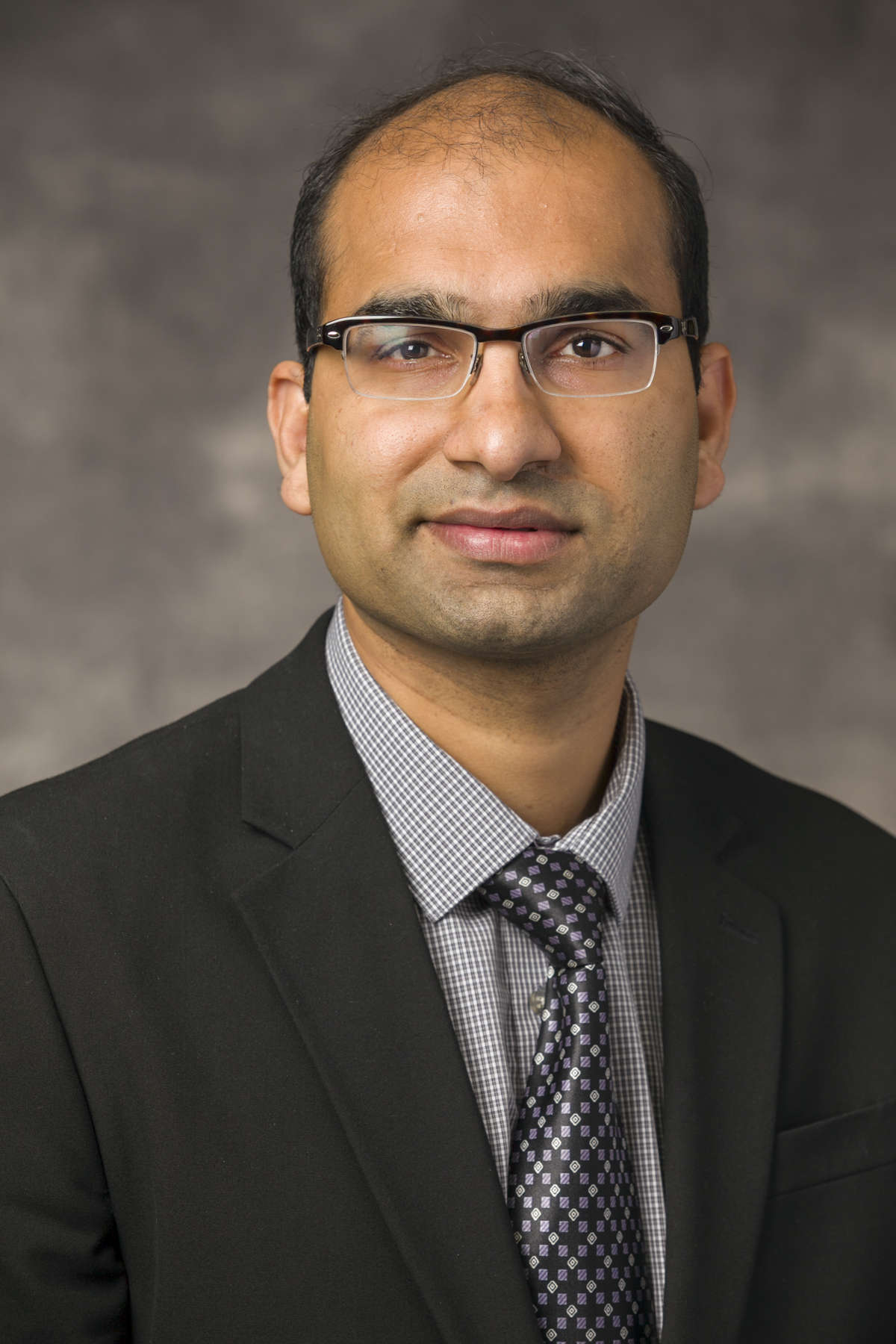Inaugural Morley-Mather Chair to bridge gaps in brain health research
May 16, 2018
Neuroscientist Andrew Pieper brings multidisciplinary expertise to UH
UH Neurological Institute - Summer 2018
 Anthony J. Furlan, MD
Anthony J. Furlan, MD Mukesh K. Jain, MD
Mukesh K. Jain, MD Andrew A. Pieper, MD, PHD
Andrew A. Pieper, MD, PHD Robert J. Ronis, MD, MPH
Robert J. Ronis, MD, MPHThe recruitment of Andrew A. Pieper, MD, PhD, Director, Alzheimer’s Drug Discovery Foundation-Harrington Scholar program, UH Neurological Institute and Harrington Discovery Institute Co-Director, Gund-Harrington Scholar program, Harrington Discovery Instituteto University Hospitals builds a bridge that will unite the multi-organizational Cleveland Brain Health Initiative (CBHI).
Dr. Pieper, who joined UH in February from the University of Iowa Carver College of Medicine, specializes in promoting survival of nerve cells and the impact this could have on patients suffering from neuropsychiatric disease, including Alzheimer’s disease, traumatic brain injury, Parkinson’s disease and other conditions of nerve cell death.
He completed his training in medicine, psychiatry and neurosciences at Johns Hopkins University, and then turned to biochemistry at UT Southwestern for postdoctoral training. There, he studied a genetic transcription factor mutated in patients with a learning disability associated with mental illness, and discovered its unique role in nerve cell survival.
“My work at UT Southwestern prompted my focus in neurodegeneration, which has endured over the past decade,” Dr. Pieper says. “For neurodegenerative diseases, treatments offered now are primarily symptomatic. We need a way to slow or even stop death of nerve cells in neurodegenerative conditions like Alzheimer’s disease, as well as some forms of mental illness, including depression and schizophrenia.”
Dr. Pieper will join the University Hospitals Neurological Institute and Harrington Discovery Institute at University Hospitals in Cleveland, Ohio – part of The Harrington Project for Discovery & Development – where he will serve as Director of the Alzheimer’s Drug Discovery Foundation-Harrington Scholar program. His work will advance the mission of the Harrington Discovery Institute along with UH’s translational capabilities, says Mukesh K. Jain, MD, Chief Scientific Officer, Harrington Discovery Institute, Chief Scientific Officer, UH Health System.
“Dr. Pieper has made a fundamental contribution to our understanding of human brain health,” Dr. Jain says. “We look forward to his leadership to enhance the impact of both programs nationally and internationally to address major unmet needs for those suffering from diverse neurological afflictions.”
Dr. Pieper will also serve as Co-Director of the Gund-Harrington Scholar program, focused on accelerating the development of vision-restoring drug therapies.
Notably, he is the first recipient of the Morley-Mather Chair, which is funded through the Department of Psychiatry and the UH Neurological Institute. This chair was created by a donation from John Morley and his wife, who wanted to boost research into depression, according to Robert J. Ronis, MD, MPH, Douglas Danford Bond Professor and Chairman, Department of Psychiatry, University Hospitals Cleveland Medical Center and Case Western Reserve University School of Medicine.
Mr. Morley later joined Dr. Ronis’ department advisory council and was part of the research program’s move to become more integrated with the UH Neurological Institute. Mr. Morley and another committee member, Ted McMillan, became the major proponents for creating an endowed chair to bring more translational research to UH. Mr. McMillan is a descendant of the founders of the Mather Foundation, which contributed to the chair.
Dr. Pieper’s work will be an important addition to the CBHI, says Anthony J. Furlan, MD, Chairman, Department of Neurology UH Cleveland Medical Center and Case Western Reserve University School of Medicine Co-Director, UH Neurological Institute Professor of Neurology, Case Western Reserve University School of Medicine.
“The CBHI is a multidisciplinary citywide effort with multimillion dollar grants from the Mount Sinai Foundation and the Cleveland Foundation that has been going on for seven years,” Dr. Furlan says. “It involves all of the Cleveland hospitals, with UH, Cleveland Clinic and the School of Medicine being the anchors.”
There has long been a friendly but arms’ length relationship between the Harrington Discovery Institute, the UH Neurological Institute and the Department of Psychiatry, Dr. Furlan says. Dr. Pieper’s drug discovery research will help bring those entities closer, in conjunction with Alan Lerner, who is the head of the Brain, Health and Memory Center at the UH Neurological Institute.
Dr. Pieper says he was drawn to the Harrington Discovery Institute because of its “dedication to bridging the valley of death between discoveries in academic medicine and industry-driven development of therapeutics for patients.”
He co-founded a San Francisco-based company, Proneurotech, to foster drug development of a series of novel neuroprotective molecules, and published the data in 2012. “Our data suggest that this family of compounds might be broadly effective for a number of neurodegenerative conditions,” he says.
Dr. Pieper will also treat general psychiatry patients at the local VA hospital one day a week and serve as a mentor to early career researchers at UH and the School of Medicine.


